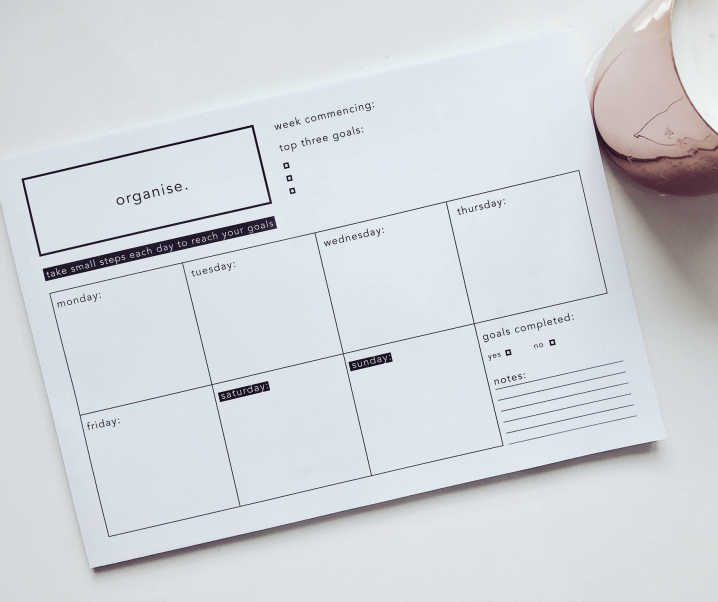My journey to freelancing
‘And when I’ve finished, you can tell me how I can improve.’ My first boss looked at me, smiling almost demonically. Her eyes wide and unblinking.
It was my three-month probation review. She was reeling off the ways I could improve as an employee and I wasn’t listening. I was having heart palpitations trying to come up with a negative aspect of her leadership that wasn’t so negative that she’d go home and tell her husband what a bitch I was.
When I was 17 I had a Saturday job at Levis. A man asked me what my weakness was in my interview and I told him I was sometimes too organised. You know, sometimes I fold too many jeans, sometimes I help too many people.
Now, as she comes to the end of her character assassination, I’m contemplating whether I can tell her she’s too organised. Perhaps it’ll be enough of a smoke screen to deter her away from the truth.
The Truth
The truth, since you’re wondering, is that she was a terrible boss. She was passive aggressive – a term I use for too many people because too many people are passive aggressive in this world. She was the type of woman who would mutter ‘if you want a job done, do it yourself’ under her breath and if somebody asked what she said, she’d sing ‘nothing’ like a true martyr.
I would tell her that I think it’s pretty weird that I’m responsible for cleaning the toilets. I’d tell her I deserve to be paid more than minimum wage because I’m single handedly holding down a PR account whilst doing much more. Perhaps I’d drop in that the way she stops what she’s doing to listen to me every time I’m on the phone is giving me next-level anxiety.
‘So, onto me. What can I do to improve as a boss?’
I shrugged and told her nothing came to mind. She didn’t want to know – not really, and I certainly didn’t want to tell her.
When I went home that night and came up with a logo for my own company. I told my mum and dad I was quitting. My mum was thrilled, my dad was not. See, at this point he hadn’t learnt that I was not cut out to be anything but self-employed.
I don’t blame him — I didn’t know at the time, either.
I went in the next day and handed in my notice. Let it never be said that I’m a cautious person. In fact, impulsive might as well be my middle name.

How do you know if you’re cut out for it?
Whenever somebody asks me how I do it they mean to say; how do I sit at home all day? How do I motivate myself out of bed when I could – if I wanted to – just work there? How do I go month to month not truly knowing if I will have enough work?
(A caveat: I do know, nowadays, that I have enough work – but building up a freelancing network doesn’t happen overnight).
My answer is very easy, because the alternative is being employed.
I’ve hated every experience of being employed. I used to think I would feel better when I had an office and didn’t have to sit amongst people.
Then I got an office and instead of sitting amongst them, they’d seek me out and I’d be in a box room without an escape route. I am the strangest combination of introvert and extrovert, but when it comes to working in an office my true introvert comes out.
There’s no real way to know if you cut out for it until you do it. Things that worry you might end up being a walk in the park once you get started, but I thought I’d share some things that I’ve found out along the way.

You don’t just do your job anymore
When you’re employed you’re responsible for one thing. As a writer, my primary focus would be writing. That’s not always the case as a freelancer; you’re an accountant, a sales person, a branding expert, the face of your brand the the brains behind it.
That shouldn’t scare you. Being totally in control of how you are portrayed to the world is a powerful thing, but it also comes with responsibility.
You can’t care what people think
I post a lot on social media. Sometimes people make comments and you just have to let them go over your head. I’ve let the opinions of others impact me before and it has only ended up slowing down my freelancing acceleration.
Post something for you — don’t spend time worrying if your friends will find you too much. If they’re your friends they’ll understand why you’re doing it and even if they don’t, freelancing is all about being out there so you may need to get a bit more comfortable with being visible online.
You might still feel guilty for not working 9-5
You know when you’re ill so you take a day off and you end up feeling so guilty for the whole day that you can’t even enjoy being in bed? That feeling doesn’t really go away as a freelancer.
If I decide to go and get my haircut in the middle of the day (because it makes so much more sense that going when it’s busy at the weekend) I will still worry and overthink and judge myself.
I’m getting better at it. Flexibility is a large part of freelancing, after all, but it’s not always easy to be kind to yourself when working = getting paid.
People won’t pay you on time
You won’t get a pay check at the end of the month.
Think about how you feel at the end of January — if you’re employed you might not have been paid for six weeks. If that is giving you major heart palpitations, being a freelancer might be challenging for you.
Freelancing is often described as feast to famine, so you need to be good with your money. During the ‘feast’ make sure you SAVE IT. Then, you won’t be so affected when your clients inevitably don’t pay you on time.
Think about how you feel about working from home
Personally, I love it. It’s my single biggest motivator for freelancing. I can’t even imagine what it’d be like to go out and work everyday at this point.
There are a lot of people out there, though, that will see working from home as a lonely situation. I’ve never enjoyed the company of my co-workers (apart from at Grey Pocket), so I don’t care about having to work at home.
Conclusion
I think at the back of your mind you know if you could do it. If you could get up everyday and motivate yourself to work.
It might seem difficult but it’s easier said than done (in my opinion) because I don’t get paid if I sit in front of the TV all day. So, if you’re somebody who gets to occasionally work from home and you find yourself doing nothing, that’s probably because you’ll still get paid at the end of the day regardless of what you do.
I also think this might be a good opportunity to plug my new podcast — it’s called Outsourced and we discuss everything about the world of freelancing. Whether you’re a freelancer or thinking of taking the leap, I think you’ll find this one helpful.













